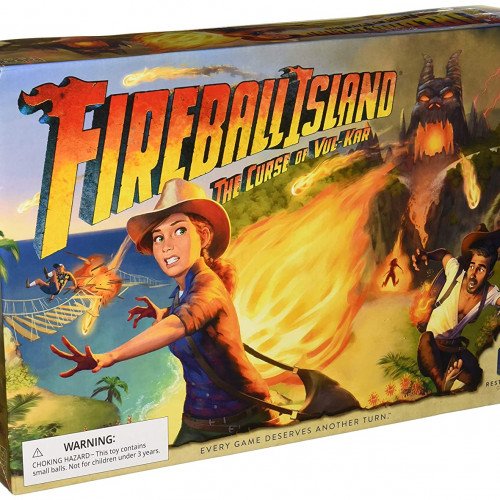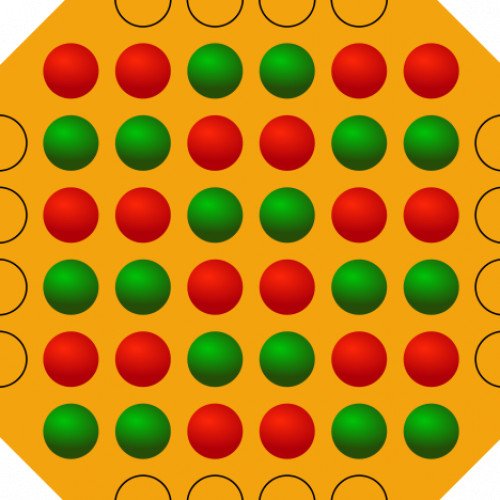"FIREBALL ISLAND" vs "FOCUS"

FIREBALL ISLAND
Fireball Island is a board game first published by Milton Bradley in 1986. The tagline is "The dimensional adventure game of pitfalls and perils!" It is set on an unexploited (by treasure hunters) tropical island, the home of the ancient idol Vul-Kar. Players progress along winding paths around the island, avoiding fireballs and trying to steal Vul-Kar's jewel and carry it to the escape boat. The game concept was originally developed by artist / toy designers Bruce Lund and Chuck Kennedy. The game was licensed to Milton Bradley by Anjar Co., an international toy licensing company and co-licensor of the game. The game mechanics in Fireball Island are moderately complex, requiring both skill and luck to win. The object of the game is to escape the island with the jewel, which must first be stolen from the top of the mountain on which Vul-Kar sits. There is only one jewel, so once a player grabs it they become the target of the others. The jewel may change hands many times during the course of a game.
Statistics for this Xoptio

FOCUS
Focus is an abstract strategy board game, designed by Sid Sackson and first published in 1964 by Kosmos. The game has been re-published many times since, sometimes under the titles Domination or Dominio. Focus won the 1981 Spiel des Jahres and Essen Feather awards. The game appears in Sackson's A Gamut of Games in the section New Battles on an Old Battlefield. Two to four players move stacks of one to five pieces around a checkerboard with the three squares in each corner removed, thus forming a 6×6 board with 1×4 extensions on each side. Stacks may move as many spaces as there are pieces in the stack. Players may only move a stack if the topmost piece in the stack is one of their pieces. When a stack lands on another stack, the two stacks merge; if the new stack contains more than five pieces, then pieces are removed from the bottom to bring it down to five. If a player's own piece is removed, they are kept and may be placed on the board later in lieu of moving a stack. If an opponent's piece is removed, it is captured. The last player who is able to move a stack wins.